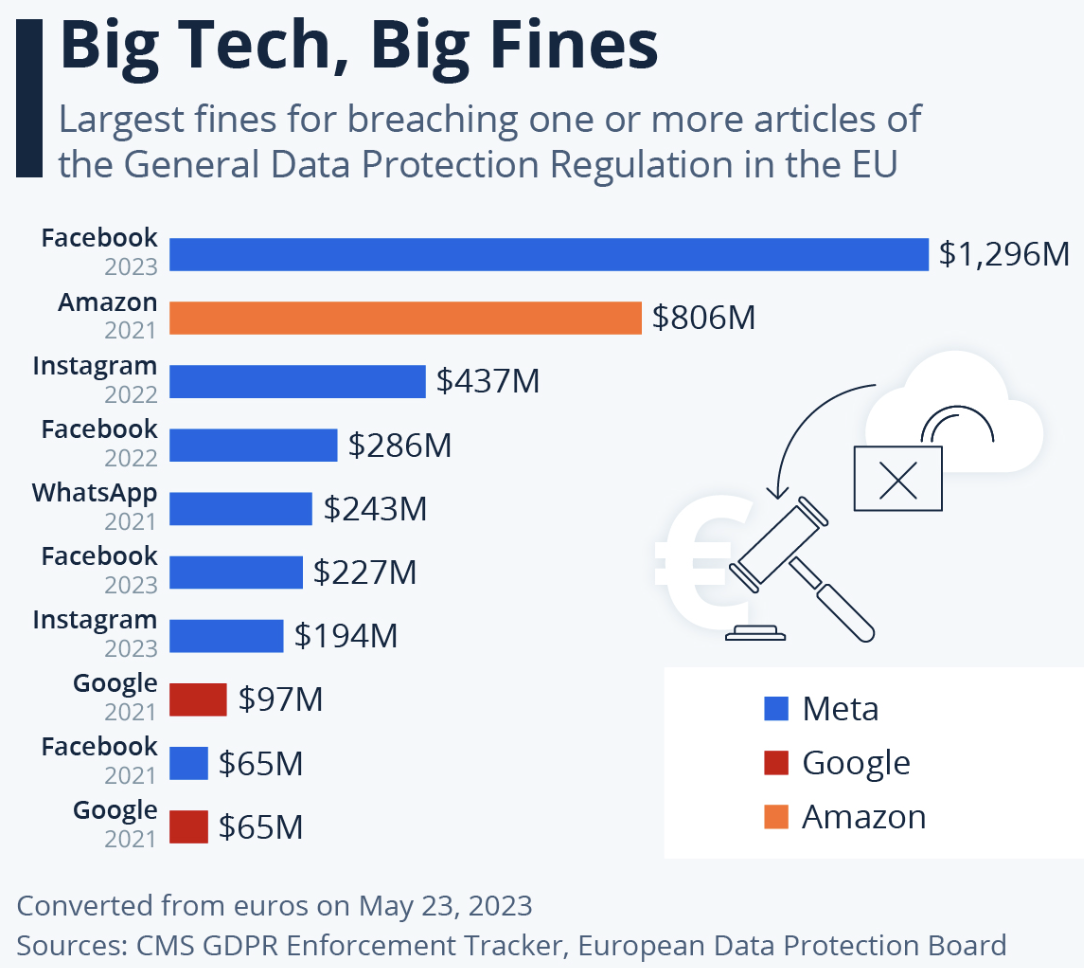|
Listen to this story
|
In August 2022, top executives of firms such as Amazon, Google, Netflix and Microsoft, amongst others, were summoned before a parliamentary panel to discuss a legal framework to curb anti-competitive practices. This was triggered by a report by a parliamentary panel that highlighted anti-competitive practices by companies like Google and Meta.
A few months later, in October 2022, the Competition Commission of India imposed two significant penalties on Google, totalling Rs 2,274 crore, for anti-competitive practices related to its Play Store billing policy. In the same week in the month of October, the giant was fined Rs 1,337.76 crore ($162 million) & Rs 936.44 crore ($113 million).
A few months later, the Indian government released a new draft of the Data Protection Bill, known as the Digital Personal Data Protection Bill. Under the proposed Bill, companies that fail to comply with data protection regulations could face penalties as high as Rs 500 crore. It has also proposed several amendments to the current IT rules, developed the draft Digital Data Protection Bill, and proposed the Digital Competition Act and Digital India Act. But it seems like the measures have kicked in very late.
On the other hand, EU has been one of the biggest imposers of fines amounting to billions of dollars. The European Union’s General Data Protection Regulation (GDPR) enables regulators to impose fines of up to 4% of global revenue for violations. Tech giants like Google, Meta, Amazon, and Apple have already encountered regulatory pressures in Europe and a few other nations, and financial consequences ranging in billions of dollars.
In 2018, Google paid a €4.3 billion antitrust fine for promoting its search engine through the Android mobile operating system. Google recently lost its appeal against that decision, although the fine was slightly reduced. The company is also challenging fines of €2.4 billion and €1.5 billion for abuse of power in online shopping and advertising, respectively.

Not just that, the EU has introduced new regulations that require tech firms to combat disinformation, particularly deep fakes. Non-compliance could result in fines of up to 6% of a company’s global turnover.
What Should India Do?
In India, historically, there has been a lack of fines for such violations, despite ongoing disputes between big tech and the government. The Wall Street Journal points out that the Indian government is adopting a combination of Europe’s strict antitrust policy and Chinese-style government surveillance in its efforts to regulate the big tech.
Even though the administration seems to be waking up and subjecting them to scrutiny and imposing fines— the effectiveness of the upcoming Digital Data Protection Law in addressing these issues remains uncertain. This may result in data leaks, a sea of misinformation, and tech giants morphing into literal giants to influence power and people.
Arindrajit Basu, a non-resident fellow at the Center for Internet and Society, in a conversation with AIM, had explained that emerging economies like India often engage in negotiations with tech giants from Silicon Valley and other regions as they continue to grow and develop. While these companies offer valuable digital services to individuals in these countries, there is a concern that they also reinforce their market dominance by extracting data from significant data markets like India. Basu highlighted the dual nature of these companies, providing services to individuals while simultaneously consolidating market concentration through data expropriation.
India could drop the dubiety and move in a similar direction as the European Commission in their ex-ante regulation and competition in digital markets. The new regulation consists of two acts: the Digital Markets Act (DMA) and the Digital Services Act (DSA). The DSA focuses on online safety, protecting rights, and increasing transparency, while the DMA is primarily concerned with ensuring competitiveness in digital markets.
The regulation aims to establish a fair playing field for emerging competitors and ensure fair treatment of users, especially business users, on large digital platforms. The goal is not to directly impact the structure of digital markets, but rather to set rules of conduct and prevent the suppression of competition.





















